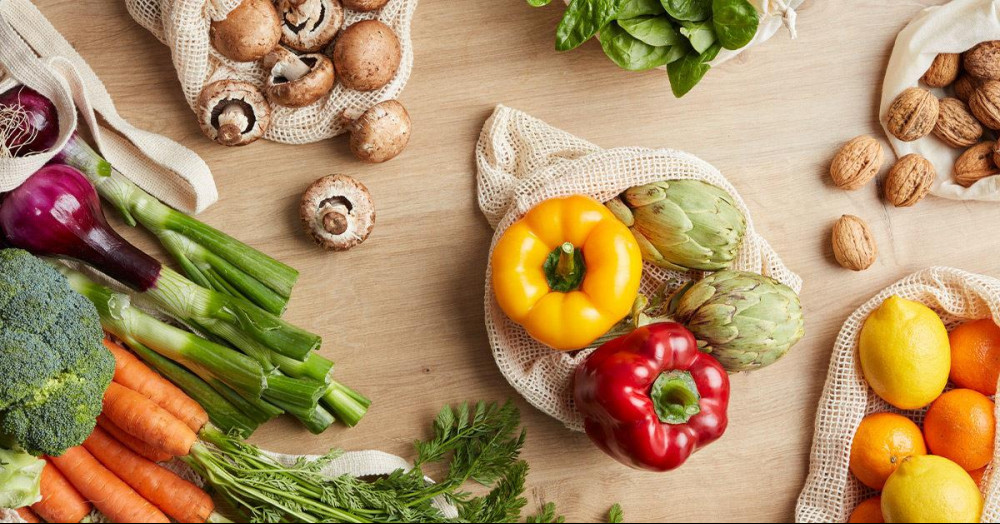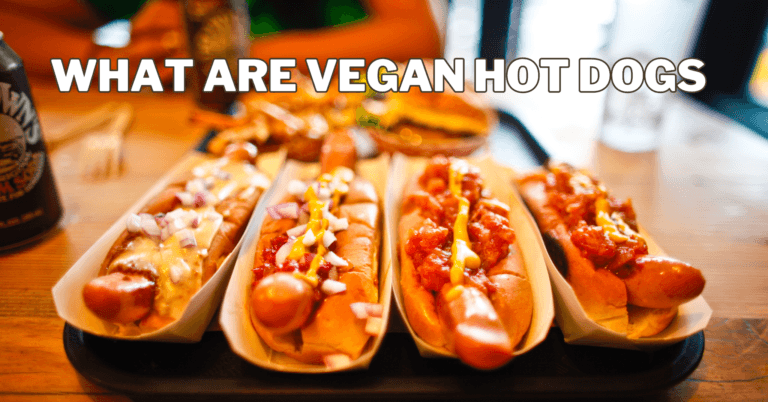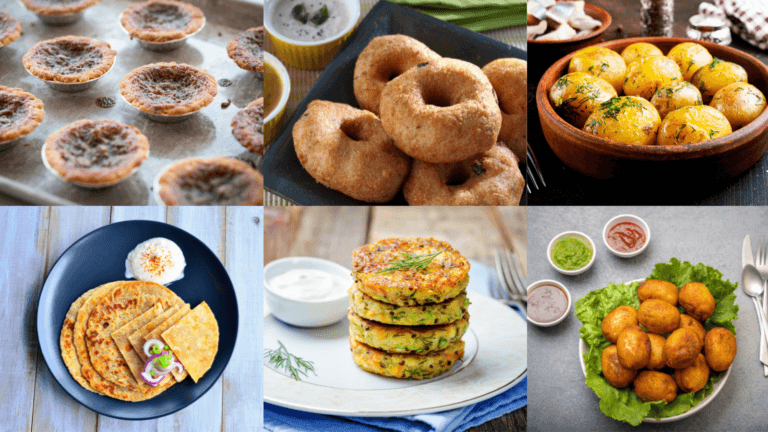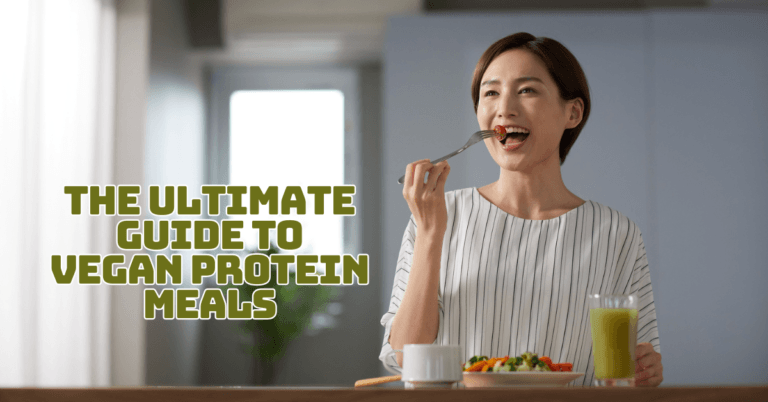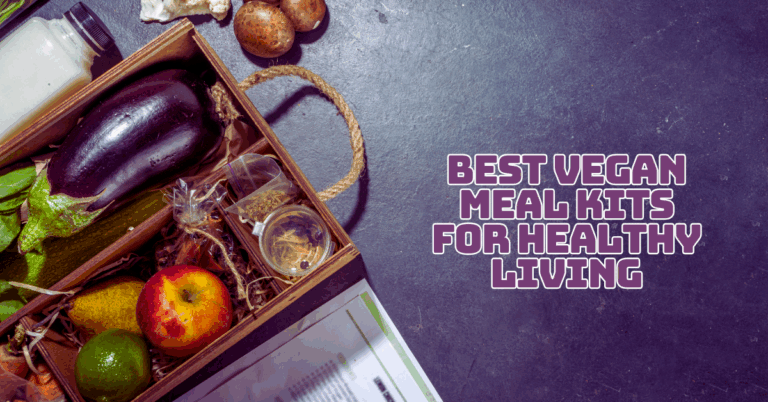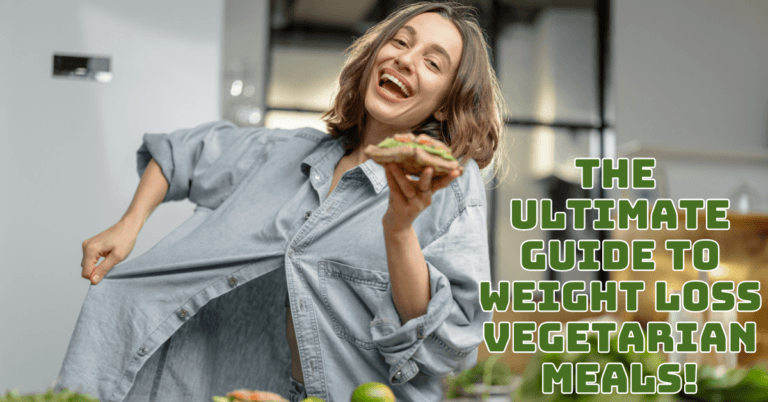How To Start Going Vegan
How To Start Going Vegan
Going vegan can be time-consuming and difficult, but the benefits are worth it. Find out some best tips for going vegan from an experienced vegan. There are many ways to make the decision to go vegan. The first step is to research the vegan lifestyle. It can be a daunting task, but it's important for you to choose wisely.
What you eat and how you live your life have an impact on your body and mind. This is why it's so important for you to start with the right information that will help guide you in making the best decision for yourself. What are some of the benefits of going vegan?
Going vegan has many health benefits, including reducing cholesterol levels, preventing heart disease, diabetes, cancer, and much more. What about the environmental benefits? Veganism reduces greenhouse gas emissions by avoiding animal products and by not producing pollution when using energy sources such as oil or natural gas.
What about animal rights? Everyone should respect animals regardless of how they were raised or treated before being slaughtered in slaughterhouses. This is also true for humans who aren't raised humanely and slaughtered in slaughterhouses without their knowledge or consent.
Many people have decided to follow a vegan lifestyle in order to improve their health, reduce their environmental impact, lower their carbon footprint, and increase animal welfare. However, not all of us can go vegan right away. If you are interested in going vegan but don’t know where to start or feel unsure about the health benefits of a plant-based diet, here are some easy ways for you to transition into your new life as a vegan.
For many people, the idea of becoming vegan is a lot to take in at first. This is because there are many things that go into making up our diet and lifestyle, not only in terms of food items but also in terms of how we live our lives. Going vegan is a personal decision that will affect the rest of your life.
It involves giving up animal products, including meat, dairy, eggs, honey, wool, and leather. Although it sounds simple at first glance, going vegan can be difficult to do without support. Luckily, there are vegan groups and events that offer support for non-vegans who want to transition over to this lifestyle. There are also many books out there on how to go vegan in a healthy way.
You've probably heard that eating more vegetables and less meat is healthy. Maybe you're even feeling inspired to try eating a vegan diet-which excludes all animal products, including dairy and eggs-to improve your health or lose a little weight.
Eating a vegan diet can be a healthy way to eat when your meals are full of vegetables, fruits, legumes and whole grains. You need a well-planned vegan diet to make sure you don't miss out on essential nutrients or end up eating only processed vegan foods.
The vegan diet has become very popular. Increasingly more people have decided to go vegan for ethical, environmental or health reasons. When done right, such a diet may result in various health benefits, including a trimmer waistline and improved blood sugar control. Nevertheless, a diet based exclusively on plant foods may, in some cases, increase the risk of nutrient deficiencies.
The Benefits Of Going Vegan
A vegan diet is great for the environment. Vegan foods are sustainably produced and typically contain less food waste than meat-based foods. Additionally, they're more nutritious and require less time in the kitchen. In addition to their environmental benefits, going vegan can help you feel happier and healthier overall.
There are many ways that going vegan can benefit your health. For instance, a vegan diet will help you lose weight as you don't have animal products like dairy and eggs to add fat to your diet. Additionally, going vegan also helps with your mental health by reducing stress levels which can help reduce depression, anxiety, and insomnia.
Going vegan is a lifestyle change you can make in your life. It's not just about giving up the things that animals have been deprived of, like meat and dairy products. Going vegan has other benefits to consider, too. One of the most popular benefits is the health benefits associated with going vegan. For example, according to Harvard Medical School, you'll find improved digestive health by going vegetarian or vegan.
Going vegan will also help reduce your risk for certain diseases such as diabetes and heart disease. It's important to note that going vegan does not mean you've lost your taste for animal products. You can still eat meat if you're looking for an alternative food source that tastes great! If going vegetarian means changing how you think about food and diet, it might be worth it to try this new way of living.
The Obstacles On The Road To Veganism
There are many obstacles on the road to becoming a vegan. It's an extremely complex lifestyle change that affects your body, your mind, and your soul. In this post, we'll discuss some of the pitfalls that non-vegans can encounter while going vegan and give you some helpful tips to overcome them. With all of these obstacles facing those who want to go vegan, it's understandable that people think it will be difficult and take a long time. When in fact, it could be easier than they realize.
Some people don't want to go vegan, but they do want to lose weight or take better care of themselves, and you can help them achieve that goal. You may not be able to go vegan immediately, but once you make the decision to get healthier, there's no turning back.
Even if you haven't gone vegetarian yet, going vegan is still a great choice for those who are currently eating meat. Going vegan can help you eat more healthfully and reduce your risk of chronic diseases such as heart disease and cancer. A new study suggests that fasting may also be beneficial for treating type 2 diabetes. If you're already eating plant-based foods regularly, it's easy to stick with it—otherwise known as “going vegan.”
How To Start Slowly And Build Up
Going vegan can be a difficult transition to make. It's easy to think about it as a huge change, but for many people, things will get easier as they “get used to” the lifestyle. First, remember that transitioning from eating meat or dairy products is not going to happen overnight! A healthy diet should be built up over time. If you start by eating just one vegan meal a day, it'll take some time before your body starts accepting the change.
Depending on your age and health status, this could take anywhere from several months up to a year or more. A good place to start is with small steps. Try eating vegetarian meals at home once in a while—you may find that it takes longer than expected for your body to adjust to the new diet, but eventually, it will become easier for you and you'll be able to eat like a normal person again. Another helpful strategy is to get around what your friends and family think about your dietary change by asking them questions about the food options available in their area (ie: if there are any vegan restaurants nearby).
The first step to going vegan is understanding that it's not as easy as just cutting all animal products out of your diet. Many people find themselves eating more and more meat each week until it becomes a habit. However, you can't stop experiencing cravings for animal foods once you've started the transition process.
That's why it's important to go slow at first. And there are many ways to go vegan. You don't necessarily have to give up dairy or eggs — but you do need to avoid meat, especially red meat and pork, poultry, fish, and shellfish. There are also three food groups that are entirely off limits: dairy products (milk, cheese), eggs, and honey/honeycombs.
The Necessary Foods You’ll Need On A Vegan Diet
You will need to make a few changes in order to go vegan, such as eliminating animal products from your diet. Food items you'll need on a vegan diet include:
- Nutritional yeast flakes
- Lentils
- Chickpeas
- Quinoa
- Tofu (or other soy-based protein)
- Tempeh or other bean-based protein
First, you'll need to make sure your body is ready to go vegan.
For a long time, many people were unaware of the nutritional needs of going vegan. It became popular in the 1990s and became trendy again in the 2000s. However, it's important to note that not all animal products are vegan. In fact, some commonly eaten animal products contain large amounts of protein and other nutrients that can be just as beneficial for the body as plant-based foods such as soy or lentils.
What To Eat If You Are New To Veganism?
When you first make the decision to go vegan, you may be tempted to eat animal products. But if you're a new vegan, it's important to choose the right foods for your new lifestyle.
Here are some ideas:
- Go easy on dairy. You can still have ice cream if you want, but don't go crazy with it. It's not as filling and doesn't provide much protein or calcium. Instead, try non-dairy milk or soy milk rather than cow's milk.
- Eat simple and lean protein sources like tofu or seitan (chicken sausage). Try to swap in legumes (beans, such as kidney beans), tempeh, nuts and seeds whenever possible.
- Stay away from fried foods and processed carbs like bread and pasta. They're loaded with refined carbohydrates that don't offer much nutrition. Stick to whole grains like brown rice or quinoa instead of white flour or refined grains like bagels and pasta. These high-fibre foods will fill you up without giving your body any sugar spikes which can cause weight gain in people who are already overweight.
Before you start going vegan, you should plan what to eat. You may want to read through the following list of food options that are vegetarian-friendly and healthy. Just because something is vegetarian doesn't mean it isn't healthy.
- Quinoa – A grain that's high in protein and fiber, quinoa is a great source of plant-based nutrition. It can be used as a complete protein, making it easy for vegans to stick with the vegan diet.
- Tempeh – Made from fermented soybeans, tempeh is heart-healthy and filled with fiber and protein.
- Soymilk – This product is one of the best options for vegetarians who want to include soy in their diets without compromising the health or taste of their favourite foods like cheese, ice cream, and other dairy products.
- Tofu – If you're looking for a delicious alternative to meat, tofu can be your new go-to! Tofu can be eaten plain or in your favorite sauce on pasta dishes or salads.
- Cauliflower – This vegetable has been compared to rice when it comes to its nutritional content.
What About Protein Sources?
Protein is an important part of a vegan diet. Your body needs it for protein, but you can also get your daily protein intake from whole grains, beans, nuts, and legumes like soy. Not only are these healthy sources of protein good for you, but they're also great ways to help you meet your daily protein needs. Vegan diets require that you consume plant-based proteins in order to function properly. This means that vegans must eat foods like eggs and dairy products on occasion to get their needed protein intake.
There are plenty of ways to include plant-based foods into your diets without compromising the quality of your overall health, including:
- Plant-based milk (like almond or coconut milk)
- Vegan cheeses like Daiya or Cheezy Cuties (yogurt)
- Foods rich in vitamin B12 such as mushrooms and flaxseeds
- Beans and other legumes (taco night anyone?)
- Nuts (like almonds or cashews)
Many people think they should be getting all the protein they need from vegan sources, but that's not necessarily the case. Just because you're eating a plant-based diet doesn't mean you have to give up on your essential protein sources. Protein is essential for the maintenance of healthy body systems and functions, including growth, repair and maintenance. If you don't consume enough protein, your body will begin to break down muscle tissue.
It will lead to lower energy levels and an overall lack of motivation and productivity. Furthermore, if you're obese or overweight, it can have serious health consequences on a cellular level. Vegan diets are high in antioxidants, which are considered by some to be an important form of protein for health reasons. Antioxidants provide the body with protection against free radical damage caused by environmental factors like pollution and radiation exposure.
Choosing To Go Vegan
There are several ways that a person can go vegan. These include:
- Eating only plant-based foods, like vegetables, fruits, and whole grains
- Finding animal products less desirable and choosing only plant-based alternatives
For those who are trying to do it on their own or don't have the time to follow a strict vegan diet, there are several other choices available. Here's a list of some good resources to help you find delicious vegan food:
- Vegan diets in health care settings (such as hospitals, nursing homes, and assisted living facilities)
- Vegan grocery stores/stores offering specialty items
- Vegan restaurants offering takeout at reasonable prices
When going vegan, you have to make a choice that will affect your diet forever. The most important consideration is how much you want to change. There are many different diets that focus on the benefits of eating plants or animals. Some people go vegan for health reasons and others do it because they're concerned about animal welfare.
Whatever your reason, you'll have to decide what's best for your body. Your diet should be something that makes sense for you and your lifestyle. If going vegan isn't right for you, don't sacrifice the benefits of living a healthy lifestyle just because of a small change in eating habits.
Finding Support For Your Journey
We all have different journeys when it comes to going vegan. Some people are interested in going vegan for ethical reasons, others because they want to lose weight, and some are purely motivated by the health benefits of eliminating animal products from their diets. It's important to get support so that you can transition into a healthy lifestyle over time.
Hopefully, your journey is a positive one and you're able to make a permanent change. Otherwise, there are plenty of resources out there that can help you find other vegans who will support you on your journey.
If you're interested in going vegan but have a hard time finding support for your transition, don't worry. There are many vegan groups and events throughout the United States that help non-vegans who want to transition over to this lifestyle. Here are a few options:
- Vegan Society of New York (VSNY) is a very active and well-known group that offers vegan-friendly events throughout the year and hosts resources such as the VSNY Quinoa cookbook, videos about vegetarian dieting, and information about how to go vegan for beginners.
- Any other Vegan Society – see the links below to some of my articles on Vegan Societies.
- The Vegetarian Resource Group (VRG) is another great resource for non-vegans interested in becoming vegan. VRG has even produced its own cookbook, which will help you make delicious vegetarian meals from scratch. You'll find plenty of resources online dedicated to helping people who want to transition over to eating meatless foods.
The Best Way To Transition Into A Vegan Lifestyle
It's important to remember that going vegan is a lifestyle choice; you don't want to just go vegan for the sake of going vegan. You'll need to make some changes, but once you've made those changes and are more comfortable with your new diet, you'll feel like a better person.
Going vegan isn't just a lifestyle choice. It's a life choice, too. It will affect other areas of your life, too, like your health and nutrition. In this piece, we'll talk you through some tricks to help you make the transition into a vegan lifestyle while staying healthy and getting the most out of your diet. It's important to start eating vegan foods as soon as you can because it can help you feel full longer and keep weight gain at bay.
This is especially true in the early stages of your transition when you're not fully aware of how many calories and nutrients are in each meal. Once you learn about protein, fat, carbs, and micronutrients that go into each food item before reaching for the next bite, it'll be easier to understand how much food is healthy for you from an overall nutrition standpoint.
Conclusion
People are very health-conscious, so it's easy to make the decision to go vegan. The health benefits of going vegan are numerous:
- Veganism is linked to a reduced risk of heart disease, cancer and diabetes.
- A study done in Denmark found that people who consume fish oils have a slightly lower risk of developing type 2 diabetes compared to those who don't.
- A Harvard study found that vegans are less likely than non-vegans to get sick during the cold season.
- Going vegan leads to a reduction in joint pain because the total amount of omega-3 fatty acids consumed is greater among vegans.
Being vegan doesn't have to be a huge commitment. You can do it without any extra effort. It may take some time, but the health benefits of going vegan are well worth it. A diet rich in vegetables and fruits helps promote your body's natural healing processes.
Meat and dairy products can inhibit your body's ability to heal itself through its production of more hormones like estrogen, which can cause breast cancer. You don't have to cut out all dairy foods or meat altogether when transitioning into a plant-based diet—you can choose between them with care. However, if you want to limit your intake of dairy products or meat completely.
I trust you enjoyed reading the article about How To Start Going Vegan. Please stay tuned. There are more blog posts to come very shortly.
JeannetteZ
Want To Learn How To Create Delicious, Cruelty-Free, Healthy AND 100% Vegan Meals? Try These Awesome Vegan Cooking Courses With A Free 7-DAY MEMBERSHIP
Your Opinion Is Important To Me
Ideas? Thoughts? Questions? I would love to hear from you. Would you please leave me your questions, experience, and remarks about this article on How To Start Going Vegan in the comments section below? You can also reach me by email at Jeannette@LivingTheVeganLifestyle.org.

